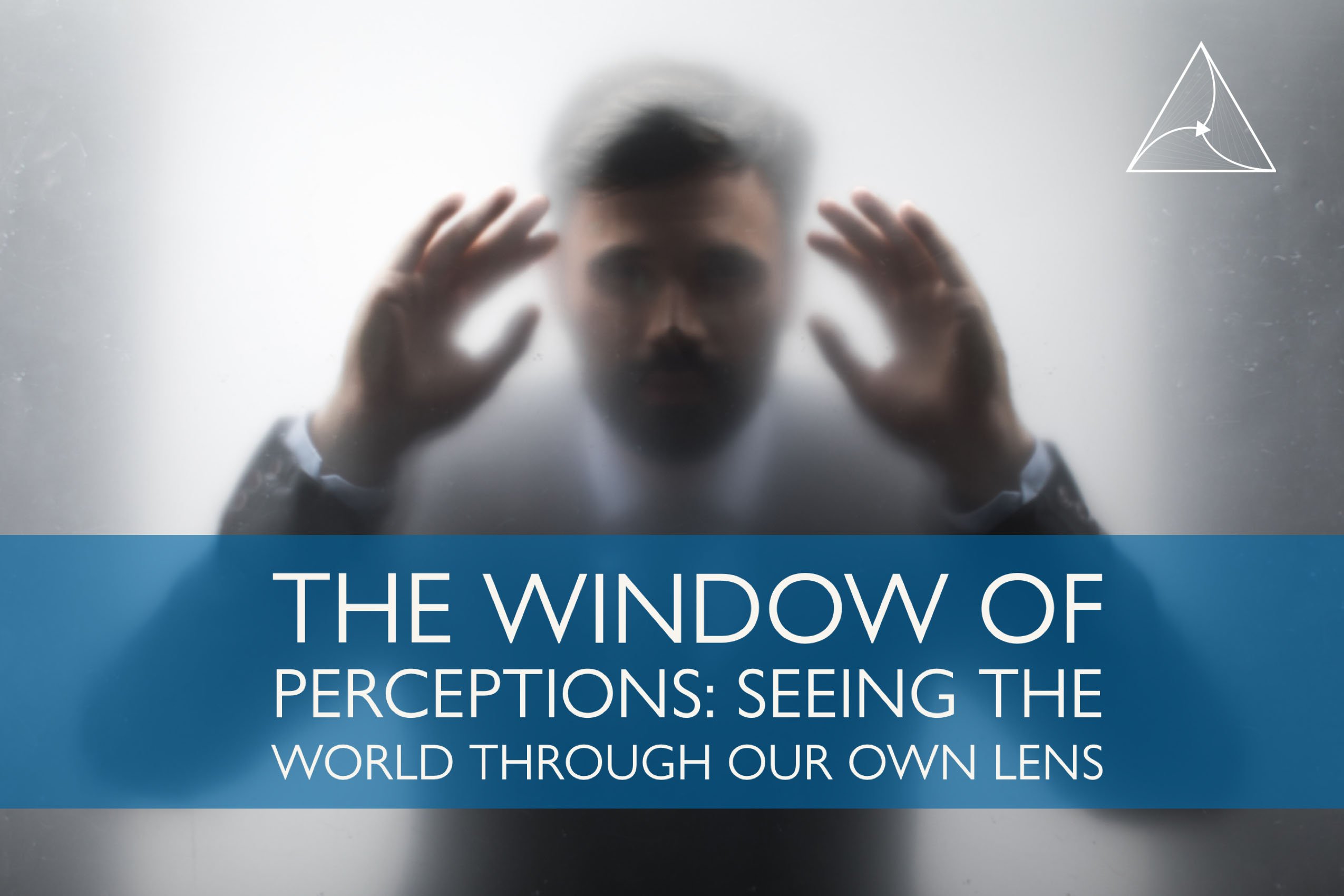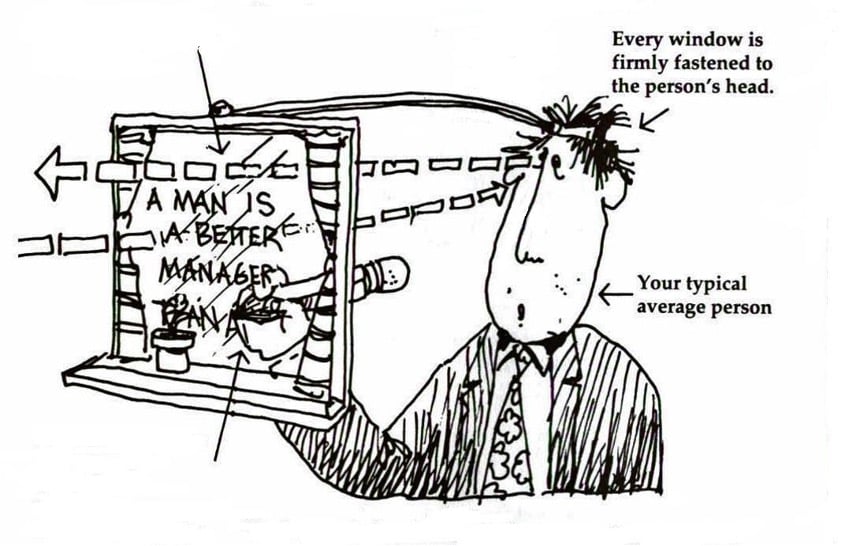6 min read
The Window of Perception: Seeing the World Through Our Own Lens
By: Chris Comeaux on 9/13/23 10:32 AM

I can remember years ago reading an early newsletter put out by Stephen Covey and in an article, he had the following picture of a person with a window strapped to their forehead:

This picture was profound to me and shortly after seeing it I was sitting in a meeting with two team members arguing about something. I tried to listen deeply and asked myself what was written on their windows. It was almost magical as I began to see things that were important to one like being right, the importance of the details of a matter, and getting the project done as perfectly as possible. Then I tried the same thing with the other team member and I could see how they had a vision for this project the other person did not comprehend and how important creativity was to this person. It was a great day indeed as I began to appreciate others and understand them and myself more deeply.
Introduction
In our daily interactions and experiences, we often forget that reality is not an objective construct perceived in the same way by everyone. Instead, each individual carries a unique window strapped to their forehead through which they view the world. As the renowned author Stephen Covey once said, "None of us see the world as it is; rather, we see it as we are." This powerful concept unveils the intricacies of human perception, shedding light on the subjectivity of our perspectives and the profound impact they have on our lives.
Subjective Lenses Shape Reality
Our personal experiences, beliefs, and cultural backgrounds all converge to form our subjective lens. This window dictates how we interpret events, process information, and make judgments. Just like a kaleidoscope, no two perspectives are alike, creating a diverse and colorful array of interpretations.
Embracing Empathy
Understanding that everyone perceives the world differently fosters empathy and compassion. Recognizing the existence of these unique windows reminds us to be open-minded, patient, and non-judgmental when dealing with others.
The Power of Awareness
Awareness of our individual windows empowers us to challenge our biases and preconceptions. It enables personal growth as we seek to broaden our perspectives and expand our understanding of the world.
Limitations of Our Windows
Though our windows offer a glimpse into the world, they are not infallible. They can become clouded by prejudices, past traumas, and limited exposure. By acknowledging these limitations, we can strive to clean our windows and seek alternative viewpoints.
Cultural Influence on Perception
Culture plays a crucial role in shaping our windows. Each society holds its own values, norms, and customs, influencing the way its members perceive reality. Acknowledging cultural differences enriches our global community and fosters intercultural understanding.
Overcoming Communication Barriers
When we communicate with others, our windows can create barriers to effective understanding. Misinterpretations may arise due to the assumptions we make based on our individual lenses. Active listening and seeking clarification are vital to bridge these gaps.
Resolving Conflicts Through Understanding
Conflicts often arise due to differing perceptions of reality. Recognizing the presence of multiple windows can lead to more constructive conflict resolution, as we strive to understand each other's viewpoints rather than imposing our own.
The Quest for Objective Truth
While our windows are inherently subjective, the pursuit of truth involves seeking objectivity. By acknowledging our biases, we can strive to perceive reality as close to its true nature as possible.
The Role of Education
Education plays a pivotal role in shaping the clarity of our windows. Exposing ourselves to diverse perspectives, critical thinking, and introspection can refine our perception and enhance our understanding of the world.
Embracing the Beauty of Diversity
Rather than viewing the existence of different windows as a drawback, we should celebrate the beauty of diversity. Our varying perspectives enrich the world, offering a tapestry of ideas, experiences, and possibilities.
Conclusion
As we journey through life, it is essential to remember that everyone carries a window strapped to their forehead, defining how they see the world. Stephen Covey's profound insight reminds us of the subjectivity of our perceptions and the importance of empathy, self-awareness, and understanding. Embracing the uniqueness of our windows and those of others allows us to cultivate a more harmonious and inclusive world, united in the kaleidoscope of human experiences.
Chris Comeaux,
President / CEO of Teleios Collaborative Network

Leadership Immersion
November 6-10, 2023
Register Now
Growth Immersion
October 3-5, 2023
Learn More
Teleios University (TU)
Discover More
Register Today!

An organizational model that allows nonprofit hospices (Members) to leverage best practices, achieve economies of scale and collaborate
in ways that better prepare each agency to participate in emerging alternative payment models and advance
their charitable missions.
Related Posts
One WORD
“Commit to the Lord whatever you do, and he will establish your plans.” Proverbs 16:3
Each year my...
The 4th Fundamental of Every Great Organization System: The Reference System
Years ago, John Maxwell developed leadership lessons which he distributed via CDs. One of the...
One Word
“Commit to the Lord whatever you do, and he will establish your plans.” Proverbs 16:3



